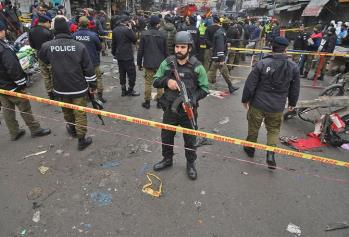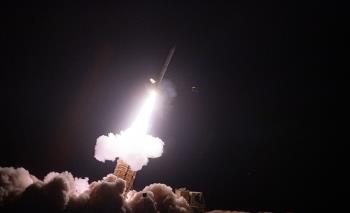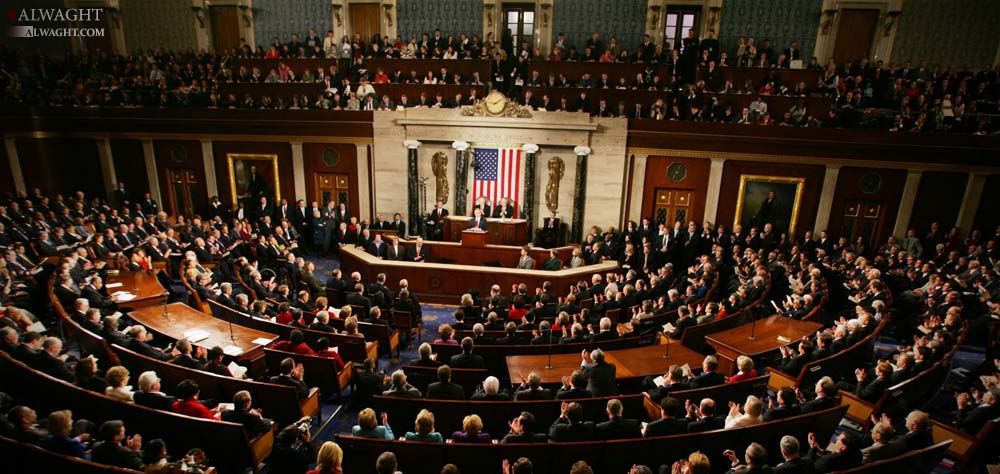Alwaght- The US Senate approved 98-2 a bill that will impose large-scale non-nuclear sanctions on Iran. The legislature was proposed by the Senate Committee on Foreign Relations on May 25 under "Countering Iran’s Destabilizing Activities Act of 2017" draft.
The bill, codenamed S.722, allows the US Senate to impose fresh round of sanctions on the Islamic Republic with a background of claims about the Iranian ballistic missile program as well as the so-called Tehran support for terrorism, and also violation of the human rights.
As a reaction to the new American limitations, the Iranian Foreign Minister Javad Zarif said that the bill was sign of the American “failure” to keep commitment to its promises. Furthermore, Bahram Qassemi, the spokesman to the Iranian foreign ministry, slammed the new round of sanctions as “running counter” to the spirit of Iran’s nuclear deal, dubbed Joint Comprehensive Plan of Action (JCOPA), struck with six powers in 2015.
A short while after Trump's assumption of power at the White House, the supposition that the new American administration led by Trump, who took tough stances against the nuclear agreement during his election campaign, will revoke the Iranian deal was shattered.
Two major reasons drove the new American president to review his radical stances on the internationally recognized nuclear accord with Tehran.
First and the most important reason was that the White House knew once it unilaterally scraping the deal, would not guarantee international consensus against Tehran that is necessary for fully re-imposing the lifted sanctions against Iran. For now, Iran is in alliance with Russia and also China in the region, aiming at confronting further NATO progresses that go beyond the military organization's conventional areas of activity on the one hand and the Western expansion of influence to East through military interventions to topple the non-allied governments on the other hand. This close Moscow-Tehran cooperation is highly observable in Syria, where Western-backed militant groups are fighting the government of President Basher al-Assad. Russia has broadened military collaboration with Iran in the war-ravaged country despite the Western insistence that Moscow should consider the military sanctions on the Islamic Republic that ban weapons supply. On the other side, the European Union, a bloc seeing its relations frayed with the US since Donald Trump become president, has reiterated its commitment to terms of the deal with Iran.
The second reason has to do with the US and its regional allies such as the Israeli regime and Saudi Arabia' interests in keeping the nuclear agreement intact. In fact, they have the conviction that any steps to revoke the deal will pose risks to their tremendous interests in the region.
A question now rises: Why does the US on the one hand keeps nuclear deal in place and on the other hand presses Iran with the old policy of sanctions?
Anti-Iranian pressure policy
Reaching nuclear accord with Iran certainly left no transformative impacts on the decades-long American strategy for regime change in Iran. In addition to their ideological conflict, Tehran and Washington have clash of interests in West Asia region. The US National Security Strategy document, updated every couple of years, describes the Islamic Republic of Iran as one of the sources posing threats to the national American interests. Actually, the mainstream idea among the US's political elites is that their country's interests cannot compromise with the ideology of the Islamic Republic. This is perhaps the main reason why decades after Iranian revolution of 1979 that established an Islamic governing system in Iran, the American administrations have not fundamentally changed patterns of behavior in dealing with Tehran. Although there have been some periods of showing flexibility towards Iran, all presidents of the US were united in the view that pressing Iran should continue.
The analysts suggest that the US foreign policy strategy to confront Iran echoes the type of policy it put into play to counter its major rival after the Second World War, the Soviet Union. This strategy revolves around the method of external pressure for internal collapse. Launching the “Iran mission center” inside the CIA is part of this anti-Iranian strategy.
Obtaining concessions from Iran
Sponsors of the anti-Tehran sanctions bill Senator Tom Cotton and John Boozman, Republicans of Arkansas, and Claire McCaskill and Roy Blunt, Democrats of Missouri, in a statement noted that the drive behind the new economic restrictions is to take a step forward to check Iran’s “destabilizing actions” that can threaten the US and its regional allies.
In this statement two issues received major focus: Iran’s missile program and its regional policies. One of the essential points of the majorly Republican critics of policy of the former President Barack Obama was a failure by him to incorporate these two issues in the topics of the negotiations for Iran deal. So, after winning the majority in the Congress and presidency, the Republicans find the time right for them to challenge the nuclear deal apparently by passing new legislature for sanctions against Tehran.



























